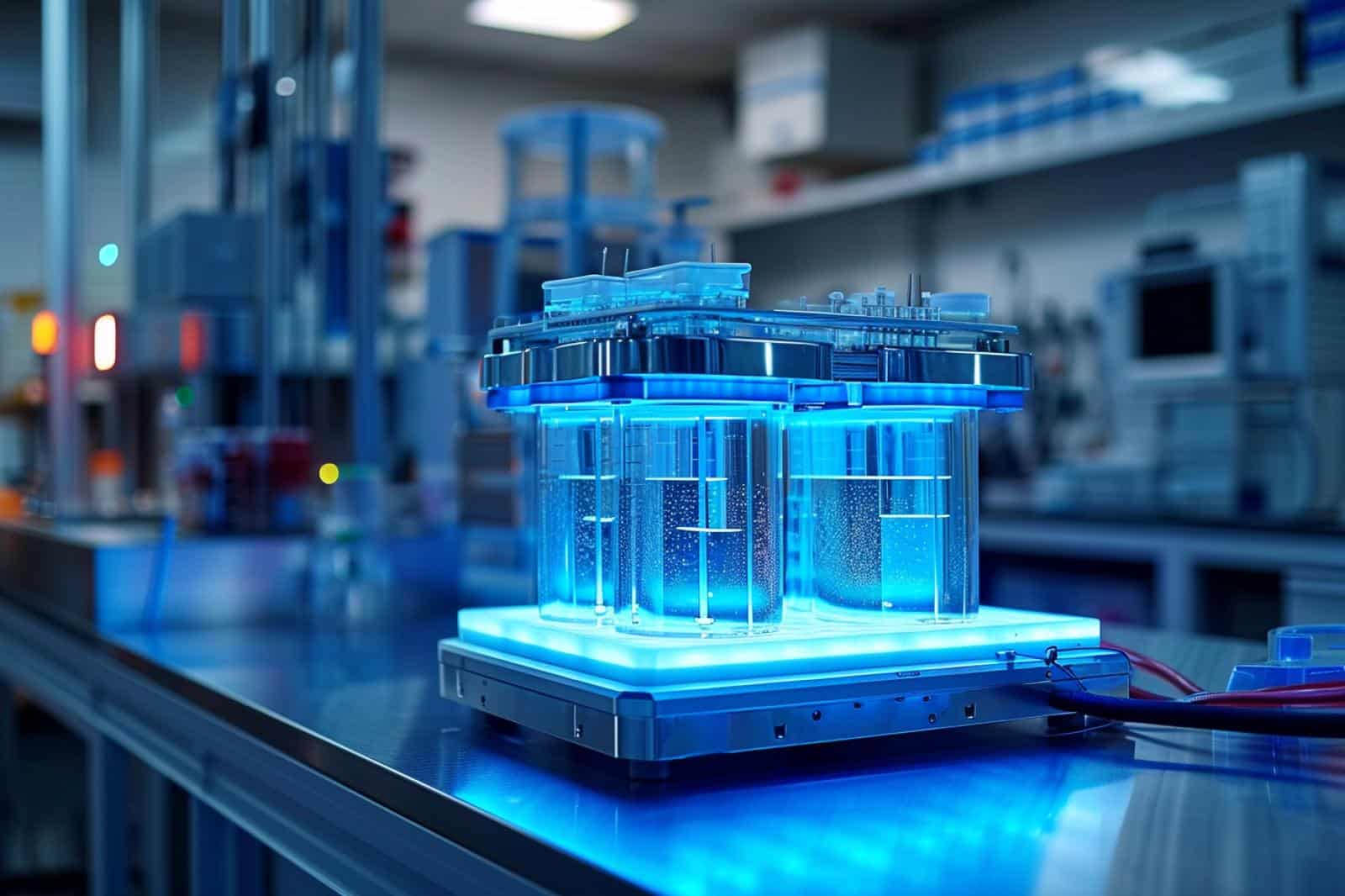What’s the potential of hydrogen as a sustainable energy source?

The global energy landscape is shifting. The days of relying solely on fossil fuels for power are being phased out, as renewable energy options take center stage. Amidst these changes, the potential of hydrogen as a sustainable energy source is coming into sharper focus. As the most abundant element in the universe, hydrogen is a green fuel that could significantly reduce greenhouse gas emissions and help combat climate change.
In this article, we will delve into the various aspects of hydrogen energy – its production, its uses, and its impact on the environment. We will also look at its potential to replace traditional energy sources and lead the way to a cleaner and more sustainable future.
A découvrir également : Unlock your reading adventure: translated chinese and korean novels
The Production of Hydrogen Energy
Hydrogen is not a naturally occurring energy source like oil or gas. It needs to be extracted from other substances. The most common method of hydrogen production is through steam reforming, a process that involves separating hydrogen atoms from natural gas. However, this method is not environmentally friendly as it results in substantial carbon emissions.
Electrolysis, on the other hand, is a green method of hydrogen production. In this process, water is split into hydrogen and oxygen through an electric current. If the electricity used for this process comes from renewable sources, it results in zero emissions.
A lire aussi : Luxurious villa rental in seychelles: your dream escape awaits
Recently, there has been substantial interest in producing hydrogen using renewable energy sources. Solar and wind-powered electrolysis are promising options that could scale up hydrogen production without increasing carbon emissions.
Hydrogen as a Fuel
Once produced, hydrogen can be used as a fuel in several ways. The most common application is in fuel cells, which generate electricity by combining hydrogen and oxygen. This process only emits water, making it a clean energy source.
Fuel cells are versatile and can be used in a wide range of applications. They can power vehicles, provide electricity for homes and businesses, and even supply power to large electric grids. As such, the use of hydrogen fuel cells could significantly reduce our reliance on fossil fuels and cut down on greenhouse gas emissions.
Hydrogen can also be burned in an internal combustion engine, just like gasoline. However, when hydrogen is burned, it only produces heat and water, making it a much cleaner alternative to fossil fuels.
Environmental Impact of Hydrogen Energy
The environmental benefits of hydrogen energy are clear. Unlike burning fossil fuels, which releases harmful greenhouse gases into the atmosphere, the use of hydrogen as a fuel results in minimal emissions.
As mentioned earlier, the only byproduct of a hydrogen fuel cell is water. This represents a significant advantage over traditional fossil fuels, which produce carbon dioxide and other pollutants when burned. Thus, a shift to hydrogen energy could play a considerable role in reducing global greenhouse gas emissions and combating climate change.
However, it’s important to note that the greenness of hydrogen energy depends largely on how the hydrogen is produced. Green hydrogen, produced through electrolysis powered by renewable energy, results in zero emissions. But the production of grey or brown hydrogen, mainly derived from natural gas and coal, is associated with substantial carbon emissions.
The Future of Hydrogen Energy
Given the pressing need to shift away from fossil fuels, hydrogen energy presents a promising alternative for a sustainable future. Its potential is not just about its environmental benefits, but also its versatility and efficiency.
The global hydrogen energy market is projected to grow exponentially in the coming years. More and more countries are recognizing the potential of this green fuel and are investing in research and development to harness this energy source.
Additionally, advancements in technology are making hydrogen energy more accessible and cost-effective. For instance, improvements in electrolysis technology are making it more efficient to produce hydrogen from water. Similarly, the development of more efficient and durable fuel cells is making it easier to use hydrogen for power.
In summary, hydrogen has the potential to be a game-changer in the world of renewable energy. Its versatility, coupled with its environmental benefits, make it an attractive option for governments and businesses alike. The future looks bright for hydrogen energy, and its role in shaping a sustainable future cannot be understated. However, its success will depend on the collective effort of governments, industries, and individuals in embracing this green fuel and investing in its development. The task is not easy, but the rewards are invaluable – a cleaner, greener, and more sustainable world.
The Breakthroughs In Hydrogen Energy Technology
The application of hydrogen energy has been hampered in the past by a few key challenges. These include high production costs, storage and transportation difficulties, and less than optimal efficiency of fuel cells. However, recent technological breakthroughs are paving the way for overcoming these hurdles.
The cost of producing green hydrogen, which can be a deterrent, is coming down due to advancements in electrolysis technology. Newer, more efficient electrolysis systems are being developed that use less electricity and produce more hydrogen. These systems are also being designed to integrate with renewable energy sources like wind and solar, making the production process even more sustainable.
The issue of storage and transportation of hydrogen is also being addressed. Hydrogen has a low energy density, which means it requires a lot of space to store. However, scientists are developing innovative storage solutions like metal hydrides and carbon nanotubes that can store hydrogen safely and compactly. In terms of transportation, pipelines and fueling stations for hydrogen are being set up in various parts of the world, improving the infrastructure for hydrogen use.
Fuel cells, a critical component in the use of hydrogen energy, are also seeing significant improvements. The efficiency and durability of fuel cells have increased dramatically in recent years, making them more practical and cost-effective. There is also ongoing research to find catalysts that can make fuel cells work better at lower temperatures, further enhancing their efficiency.
Conclusion: Making Hydrogen The Energy Source Of The Future
Hydrogen energy holds immense promise as a sustainable, clean energy source of the future. Its ability to produce energy without producing greenhouse gases makes it a key player in the fight against climate change. However, establishing hydrogen as a primary global energy source requires overcoming certain challenges.
The first is making green hydrogen production more cost-effective and scalable. This involves furthering advancements in electrolysis technology and integrating it with renewable energy sources. The second challenge is improving the infrastructure for hydrogen storage and transportation. This includes developing compact storage solutions and expanding the network of pipelines and refueling stations. Lastly, the efficiency of fuel cells needs to be further enhanced to make hydrogen a practical and effective energy source.
The task is substantial, but the potential rewards are immense. The shift to a hydrogen-fueled world could dramatically reduce carbon emissions and slow the pace of climate change. Moreover, it could lead to energy independence for many countries, as hydrogen can be produced anywhere where there’s water and electricity.
The future of hydrogen energy is bright, but it requires concerted effort from governments, industries, and individuals. By investing in research and development and supporting policies that promote the use of hydrogen energy, we can make this vision a reality. Together, we can shape an energy future that is cleaner, greener, and more sustainable for all.
